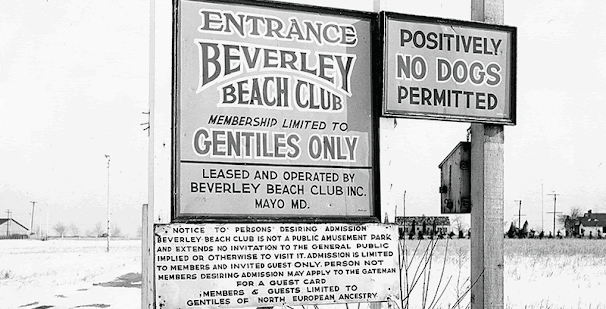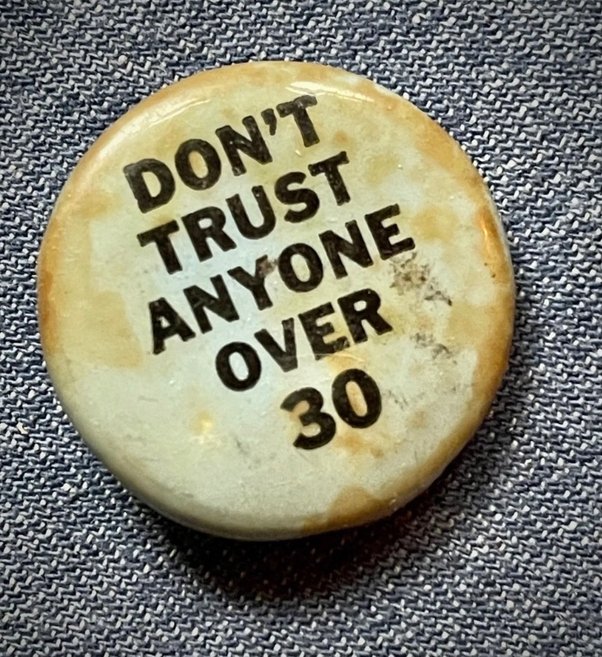Carry On... #Don't Trust Anyone Over 30
Imagine for a moment that you're a middle-aged American witnessing the 1960s.
You probably have vivid memories of World War II. Depending on just how "middle-aged" you are, you might even have some memories of World War I. In any event, your formative years were probably spent during the decade of the Great Depression. If you are male (and in some instances female) your "vivid memories" of World War II are probably the kinds of memories that wake you up screaming in the middle of the night.
If you are a parent, your kids were most likely born during the post-war "baby boom". And if you are even slightly liberal, you probably raised them according to the teachings of Dr. Spock, giving them a much more permissive and soft upbringing than you ever had from your own parents. In any event, your kids' formative years would have been spent in the 1950s, when the country was enjoying a period of economic prosperity. They would have had a great childhood; much better than yours (unless they're gay, or black, or Jewish, but who cares about any of them, right?).
But now it's the 60s. Your kids and their friends are in their early twenties and they're all growing their hair, burning their draft cards (or their bras, as the case may be) taking various psychedelic drugs, trying to levitate the Pentagon and insisting that you start calling them Dandelion Moonbeam (or something similar).
What the hell has happened to your country?
The slogan Don't Trust Anyone Over 30, which was to become the battle cry of the youth movement, was initially coined by Jack Weinberg, a youth activist and free-speech champion at Berkeley.
Mr. Weinberg is now 83, lives in Chicago and has three grandchildren, by the way.
The phrase was picked up and weaponised by Jerry Rubin and Abbie Hoffman, founders of the Yippie (Youth International Party) movement.
Abbie Hoffman was the one who had tried to levitate the Pentagon in 1967. Actually, he said he would "levitate the Pentagon until it would turn orange and begin to vibrate, at which time the war in Vietnam would end."
Remember, kids, Just Say No.
It's very easy to look back and laugh at all these histrionics, and a lot of it was genuinely ludicrous.
I don't think I'm giving away any spoilers when I say that the Pentagon levitated not, neither did it vibrate. And most of the hippies eventually got bored and went home to get haircuts and become stockbrokers.
But to the older generation, a lot of this was emphatically not funny at the time, and many of them worried about what the future was going to look like once all these stoner/hippie/free-love flower children were actually in charge.
If this carries on...
Logan's Run is a science fiction film that could only have been made as a response to the 60s.
Set in a post-apocalyptic future (all versions of the future featured a nuclear armageddon in those days) it presents a world in which humanity lives in a protective dome, completely cut off from the outside world. Everyone in the dome lives exclusively for pleasure; enjoying endless casual sex (in various combinations) and recreational drugs, generally enjoying The Good Life, free of any responsibilities or worries. Basically, hippies have inherited the Earth.
And of course, no one is allowed to be older than 30.Everyone in the dome grows up with a "life-clock" (actually a crystal in the palm of one's hand) that changes colour as they age.
When they turn 30, the crystal begins to flash, and they are expected to participate in a dramatic and fiery "re-birth" ceremony where they are presumably given new life and born again (in reality, they are merely killed, of course).
A few malcontents try to evade this fate, but they are swiftly hunted down and terminated by the society's enforcement class; the "Sandmen".
Logan's Run is the establishment's nightmare scenario of a future run by the 60s youth culture. The Earth has been inhabited by the flower children, the hippies and the Yippies, and they most assuredly don't trust anyone over 30. Eddie Cantor used to sing about Makin' Whoopee. Logan's Run is about Makin' Yippie.
The World of Tomorrow! Yesterday!
The irony is that Logan's Run was dated even before it was released. It was certainly a product of its time in that it was reacting to a specific cultural moment, but it was also delayed by production problems, creative disagreements and studio nerves. Even though it reflects contemporary fears of the "Swingin' Sixties", the film was actually released in June of 1976; arguably a decade too late.
By 1976, many of the issues that had fuelled the hippie movement had faded. Richard Nixon was emphatically out of office. President Jimmy Carter had abolished the draft, and the Vietnam War was officially over. What's more, the Boomer generation were themselves starting to enter their 30s, so the battle-cry about whom to trust was starting to sound a little awkward.
Logan's Run would have felt a lot edgier and more relevant if it had been released in 1967, when it had first entered "development".
Timing issues aside however, the film itself is intelligent, and very well realised. Even though it was late to the party, it has a lot to say about society's reaction to a very specific era of American history.
Logan's Run also features one of the most impressive and sophisticated musical scores ever written for a Hollywood science fiction film.
Rather than follow the usual technique of assigning a musical idea (or leitmotif) to each character or situation, composer Jerry Goldsmith effectively reverses that by building the entire score out of a single musical idea, consisting (more or less) of three notes (actually it's three-and-a-half notes, if you want to quibble):
The score is then divided into three vastly different musical styles, to represent different aspects of the story - but all three styles are built around the same motif.Logan's Run was a very high profile, big-budget film, and was also one of the last of the "high-concept" science fiction films of the era; rounding off a decade that had featured films such as Planet of the Apes, 2001, The Andromeda Strain, Soylent Green and others.
It may have missed the era it was critiquing, but it remains a very well made and sharply observed commentary on America of the 1960s.
We will screen Logan's Run at 7.30 on Thursday, the 30th of November at the Victoria Park Baptist Church.





















Comments
Post a Comment